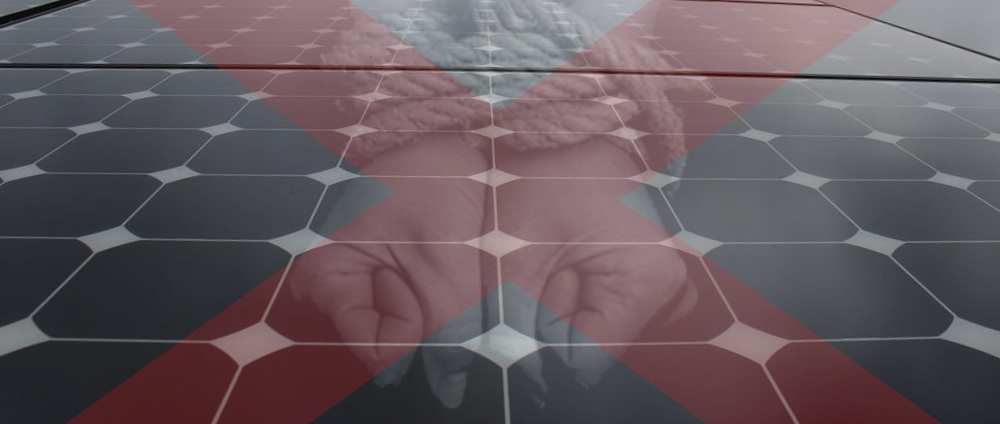Amendment to the GB Energy Bill to prevent investment in panels produced by modern slavery
[edit] Announcement
ECA has welcomed the move made by Ed Miliband on 23 April, 2025 to propose an amendment to the GB Energy Bill. The amendment would prevent the nationally-owned energy company from investing in solar panels produced by modern slavery.
The Government had feared introducing restrictions to the solar supply chain would slow down the transition to renewable energy generation, which is central to its Clean Power 2030 mission. The Solar Stewardship Initiative (SSI), who work across the global solar value chain to foster responsible production, sourcing and stewardship of materials, are confident the supply of panels will continue to meet growing demand.
By the end of this year, SSI-certified manufacturing facilities will produce 100 gigawatts of solar panels each year, all produced without the use of forced labour. That is around five times more than the UK’s existing solar panels. If the UK’s solar industry continues in alignment with counterparts in Europe, the Clean Power 2030 target will remain on course.
Many concerns about forced labour arise from the exploitation of the Uyghur population in Xinjiang where around a third of polysilicon, the raw material for solar panels, is produced. China currently dominates the market for green energy technology. Britain will therefore need to pivot solar investment to other parts of the world, including from a small but growing number of British suppliers.
The GB Energy Bill has already passed through the House of Commons and is due to be voted on by the House of Lords soon. Peers from the three main parties joined forces with Labour back-benchers to lobby the Secretary of State to introduce the amendment preventing forced labour in the supply chain.
[edit] Modern slavery
Modern slavery is the recruitment and harbouring of humans through the use of force, abuse, deception, and coercion for exploitative purposes. It is estimated that there are more than 45 million people subject to modern slavery in the world today.
The construction sector is particularly vulnerable to modern slavery because of its extended supply chain, opaque procurement processes, skills shortage and high demand for migrant labour. This means that supply chains can conceal human rights abuses and exploitation.
The Modern Slavery Act was introduced in March 2015 to tackle slavery in the UK and in the supply chains of major UK corporations. It aims to prevent modern slavery in organisations by increasing the transparency of company practices.
This article appears on the ECA news and blog site as 'GB Energy to invest in responsibly produced Solar Panels' dated 23 April, 2025.
--ECA
[edit] Related articles on Designing Buildings
- Construction recruitment agency.
- Corporate social responsibility in construction.
- Equal opportunities policy.
- Equality Act.
- Ethical labour sourcing standard.
- Ethics and the engineer.
- Ethics in construction.
- Human resource management.
- Illegal.
- Large scale solar thermal energy.
- Modern slavery.
- Resource management.
- Solar Stewardship Initiative.
- Solar energy.
- Solar gain in buildings.
- Solar photovoltaics.
- Solar Stewardship Initiative.
- Solar thermal systems.
Featured articles and news
Impact report from the Supply Chain Sustainability School
Free sustainability skills, training and support delivered to thousands of UK companies to help cut carbon.
The Building Safety Forum at the Installershow 2025
With speakers confirmed for 24 June as part of Building Safety Week.
The UK’s largest air pollution campaign.
Future Homes Standard, now includes solar, but what else?
Will the new standard, due to in the Autumn, go far enough in terms of performance ?
BSRIA Briefing: Cleaner Air, Better tomorrow
A look back at issues relating to inside and outside air quality, discussed during the BSRIA briefing in 2023.
Restoring Abbotsford's hothouse
Bringing the writer Walter Scott's garden to life.
Reflections on the spending review with CIAT.
Retired firefighter cycles world to raise Grenfell funds
Leaving on 14 June 2025 Stephen will raise money for youth and schools through the Grenfell Foundation.
Key points for construction at a glance with industry reactions.
Functionality, visibility and sustainability
The simpler approach to specification.
Architects, architecture, buildings, and inspiration in film
The close ties between makers and the movies, with our long list of suggested viewing.
SELECT three-point plan for action issued to MSPs
Call for Scottish regulation, green skills and recognition of electrotechnical industry as part of a manifesto for Scottish Parliamentary elections.
UCEM becomes the University of the Built Environment
Major milestone in its 106-year history, follows recent merger with London School of Architecture (LSE).
Professional practical experience for Architects in training
The long process to transform the nature of education and professional practical experience in the Architecture profession following recent reports.
A people-first approach to retrofit
Moving away from the destructive paradigm of fabric-first.
International Electrician Day, 10 June 2025
Celebrating the role of electrical engineers from André-Marie Amperè, today and for the future.
New guide for clients launched at Houses of Parliament
'There has never been a more important time for clients to step up and ...ask the right questions'
The impact of recycled slate tiles
Innovation across the decades.
EPC changes for existing buildings
Changes and their context as the new RdSAP methodology comes into use from 15 June.



























